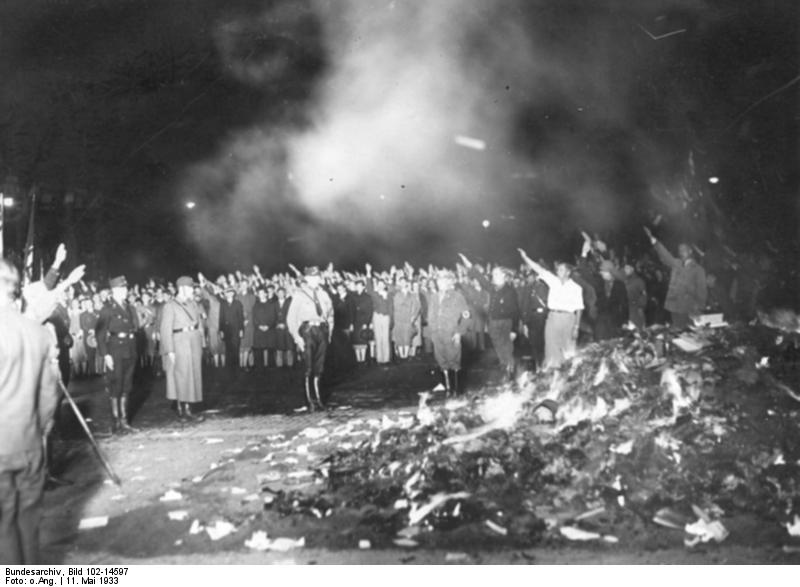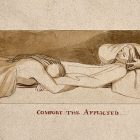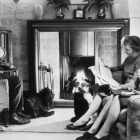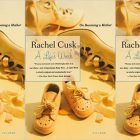What comes through the fence: reading Paul Celan after the US election

All through the days that followed the American election announcement, we contacted friends to ask if they were safe, we offered support. Facebook statuses poured in, reports of the spike in hate crimes. Pictures of swastikas painted on cars and houses, photographs of neo-Nazi pamphlets.
I felt the old trap of history closing in again – sometimes it grants a small reprieve, we couldn’t live normally if we didn’t feel such reprieve at least sometimes, even simply through forgetfulness. But it closed round me again, a hand on my throat.
I am an almost laughable amalgamation of marginalized identities held up by contemporary intersectional feminism as the meeting place of so many kinds of oppression. All these grand words for things that are to be lived if they are to be understood. I am a queer, Muslim, woman of colour, rape survivor with PTSD – in my case, rape that carried with it longstanding and repeated abuse with a strong vein of racism, of certain historical hatred, warped and targeted.
So of course, in the grand statements, in the overwhelming sweep of history, I haven’t held the winning cards. But there are things, there are horrors of history that are lived in the flesh and not in the statements, not in the empty flogging of speech. History of the kind we see now, familiar to us in the old language of propaganda, of concentration camps and Nakbas, is at once what makes it to the books – the analysis, the grand sweep, and the painfully, acutely intimate. It isn’t something at a distance, it isn’t even so removed as to be an idea to be addressed as ideas are addressed – far enough away to at least look at the thing. It lives in the ribs. It is built into the muscle memory.
To use the word that is slowly having its very real, very urgent meaning eroded, I spent days “triggered” – memories of the abuse came back, I was in pain, I couldn’t concentrate, I was deeply dissociated. It was, and continues to be, a time fraught with sickening shock, the grim certainty that comes when your entire being has been the target of attempted annihilation. The brain turns to its most fundamental urges — towards light, food, shelter, life, the thing determined to keep living, whatever it has to do.
There is little room for grander things, for hope. But I am ashamed to say that hope is not the first instinct, at least not for me. My first instinct is to go toward life, whatever that requires of me. If a man is angry you do what you need to in order to placate him. If you have no food, or shelter, you do what you must to get those things. If a man wants to hurt you, you find what he may want a little more than to kill you, and you provide it. This is all very difficult to explain, harder still to write, this being driven to the simplest, this steady relinquishing of whatever becomes superfluous. I hardly feel as if I were making sense, most of the time, so I turn to someone who I felt reached it, through the work of years.
I want to write to you about Paul Celan’s use of language, in his case, German, as a survivor of the Shoah. How he used the broken shards of a language used to order the deaths of millions, language used to set out the parameters and schedules of hell, in order to tell of the horrors he witnessed and lived through. Anne Carson, in her exquisite work, “Economy of the Unlost: Reading Simonides of Keos with Paul Celan” (Princeton University Press, 1999), describes him as “a poet who uses language as if he were always translating.” Celan, a Romanian Jew who survived both Soviet and German occupation before living the rest of his life in exile in Paris, until his death by suicide in 1970, wrote his poetry in the language of his mother and those who had murdered her.
Out of the results of the warping of the German language to serve the processes and ideology of Nazism, the garbled doublespeak of racial “laws” and “special treatment” and “transport” and “resettlement”, of propaganda and pseudo-science, and later out of the lived experience of concentration camps, of death, living death all around, Celan understood the function of what he called Sprachgitter – Sprach, language, Gitter, a kind of fence, a woven mesh. It imprisons and allows passage, it traps and salvages. Carson explains how Celan’s relation to the German language, and use of it to tell what it did, what it went through, was only possible through “a process of severe and parsimonious redaction.”
How to tell of the destruction of all compass-points, the stripping bare of all bearings, God, goodness, human, truth? The bullet in the head, death come for you so neatly, so unfettered in imagination, so wholly irresponsible for itself, so capricious and thorough. How to explain the howl for God in those moments, when the world takes up the steady work of your undoing, when the good neighbours start to adopt the language of what will come knocking at your door to shoot you, when the television blares it, when the radio whistles it merrily in the shops? And then the physical acts of death themselves, whether they’re the gun at your head or the rape in the shuttered dark.
Celan writes,
He shouts play death more sweetly this Death is a master from Deutschland
he shouts scrape your strings darker you’ll rise then as smoke to the sky
you’ll have a grave then in the clouds there you won’t lie too cramped
He writes,
I hear the axe has flowered,
I hear the place can’t be named,
I hear the bread that looks on him
heals the hanged man,
the bread baked for him by his wife,
I hear they call life
the only refuge.
My own history of trauma is inseparable from certain language, in this case, German, and the history of that language. Its legacy of wounds – these are personal things, entering into the deeply intimate parts of my particular history, but they are also part of the grand sweep of history, what repeats and repeats, as Trump is elected president of the most powerful country in the world, as he appoints neo-Nazis to positions of power, as Marine le Pen’s support in France spikes, and “post-truth” enters our common parlance as quietly as breathing. Now the associations built with certain things – the German language, the horror of fascism, the symbols and language of Nazism, are applied on a grander stage, as they have slowly been applied over a number of years, to my identity also as a Muslim woman, a woman of colour.
Can I convey to you what that does? What happens to a brain after trauma? What happens to language when it is undone by the attempted annihilation of the entire self – from the abused mind to the raped body? There is enough literature to read on the undoing of language by trauma. I don’t believe I can explain it so I must turn again and again to others like Celan, who knew and bore this fracturing.
In an often-quoted speech he gave at Bremen, he said, “Reachable, near and unlost amid the losses, this one thing remained: language. This thing… remained unlost, yes, in spite of everything. But it had to go through its own answerlessness, had to go through terrifying muteness, had to go through the thousand darknesses of death-bringing talk. It went through and gave no words for that which happened; yet it went through this happening. Went through and was able to come back to light “enriched” by it all.“
For years, I couldn’t speak German. I had studied it for seven years. I couldn’t stand to hear it or read it. But I could read Celan. What came through the fence was made clean, somehow, spare and necessary as bone. What came through bore what the language had done, what had been done to it, all it had called forth in human beings, all that had been filthied and poisoned with euphemism and crisp brutality, and what was fine enough to survive, unlost. Celan writes out of the aftermath – what was done in the moment lives in the aftermath because of the holes you see in the language, the hesitations and silences, the lapses and shards – you see the chalk outline of what was murdered, and so you know that murder was done.
Several people have pointed out how poetry tends to experience a surge of readership and sharing in the wake of devastating events, like 9/11, like the election of Trump. Already, English shows the thousand silences, the death-bringing talk. Already, these things are written into the marrow of the language. Solmaz Sharif begins to enter this territory in her magnificent rewriting of the US Department of Defense’s Dictionary, in her entry for “Drone” writing: “I practice the work of worms • how much I can wear away with no one watching.”
In the midst of a world that conspires at the annihilation of oneself, language bears the marks of this destruction, and in bearing those marks, in being fractured and carrying that fractured, wounded quality, it bears testimony to things most would rather forget, or ignore, absorb into our common parlance, allow to live in the background, humming efficiently as a radio in a shop. If we are to remember that this is not normal, that we are entering the places where language is undone, has been undone, the Sprachgitter is all we have, the function of language that survives atrocity.
Its very fracturedness, its sparseness, acts as both testimony and resistance. It says: this is how far the rot went, how deep the wound. There are so many traumas coming to the center of our political life now, more apparently than usual to the ordinary, privileged eye, and what I am attempting to say, through the choking silence, through the hundred breakdowns of speech, in trying to say, this is what has been happening, this is the insidious thread of menace, this is what we have been screaming about, unheard, is that there are places where language is undone. The horror of it is always there, lives in the breath and the street and the news and the document.
When I hold these translations in my hands, when I read the fractured German, the empty space of the margin, touch so, with my hand, the thread of history continuing through all things, carried in all things, they bear testament to what broke them, to what necessitated such a stripping-bare, such relinquishing to make it through, to survive, say, these are the dregs, after the horror passed through me. May they be a comfort to you who also go through the dark places. May they show you the way out.
Celan writes,
O one, o none, o no one, o you:
Where did the way lead when it led nowhere?
O you dig and I dig, and I dig toward you,
and on our finger the ring awakes.



